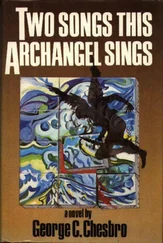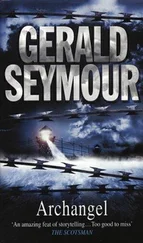“Halfway, maybe?” he said to Caroline. “I’m not that interested in the farm experiments, but I really like the flying machines.”
“They’re beautiful, aren’t they? The first time I saw one up in the air — did you see the Red Wing take off from the lake in March?”
He shook his head. “I wasn’t here then.” How unfair that he’d missed not only all that Beryl had seen, but this too!
“The wings were red silk,” she said, “and it had runners on the bottom. The builders loaded it on the steamer and brought it to the edge of the ice — it had already melted at this end — and lots of us walked along the shore until we reached the launching place. The men held on to it while the engine warmed up and when they let go it chattered down the ice for a bit, then rose up and …”
She described every detail rapturously, her face lit up even as her hands retrieved sandwich crusts cast aside by the twins, dolls dropped, shoes pulled off, and suddenly he found himself paying complete attention to her.

WHILE THEY TALKED, rising occasionally to chase after one or another of the twins, feeding them and Elaine from the picnic hampers, the hours passed, the temperature rose, the wind increased, and the clouds piled up, flipped on their backs, tumbled over each other. The boys Constantine swam with thundered by in a herd, ignoring him. The crowd grew more and more restless as G.H. and the mechanics—“There’s my father,” Beryl said, pointing out a short, bowlegged man before turning back to Ed — kept stepping outside the tent to check the clouds and test the wind, to shake their heads and step back inside. Taggart and Ed walked over several times and returned, looking grave but still convinced the flight would take place. People left, but others arrived and the grounds were still crowded when, early in the afternoon, the rain began to fall. Miss Atkins, cleverly, had brought a large piece of oilcloth that she strung from the tree to a pole Ed made from a sapling. The winery opened its doors and many on that side of the field ducked inside until the cloudburst ended.
The sun came out, but then it was windy. Then the wind dropped but the clouds gathered ominously again. Miss Atkins caught a fat beetle flying heavily under the oilcloth and showed it to Constantine and the girls. A June bug, she said; it flew with its thick outer wings, which were called elytra, stuck out stiffly while the little underwings whirred below: rather like the busy propeller beneath the stiff wings of the aeroplane, which was how it had gotten its name. Constantine tried to look interested — it was sort of interesting — but Caroline laughed affectionately and patted the back of her aunt’s hand. The dirigible man passed by, also the men experimenting with the ornithopter and the helicopter. A handsome young man in a white suit came over to talk to Taggart and Ed, who introduced him to Miss Atkins but not to the rest of them; after he left Miss Atkins said he was a famous plant explorer who’d helped his father-in-law design a massive tetrahedral-celled kite.
All afternoon the crowd milled about, each swirl and shuffle bringing new people past their little plot: some of Taggart and Ed’s old professors from Cornell; men from the experimental station at Geneva; automobile makers from Rochester and Syracuse; reporters from Buffalo and Albany and New York. Constantine, now firmly cast in the role of Caroline’s helper — he’d watched after his own younger sisters at home for so long that he couldn’t help interfering with these — eavesdropped on their conversations as he dabbed jam from Agnes’s hands and removed Alice’s wet socks after an incident with a puddle. He heard gossip about the Wright brothers’ aeroplane, which they’d so far declined to exhibit in public, and which launched from a track instead of rolling along on wheels. Twice more it rained, but only briefly, and still almost everyone stayed. Had there ever been such a long afternoon?
Elaine fell asleep over her book, the twins dropped their heads onto Caroline’s lap, and Constantine gave up and stretched out on his back, looking up at the square of cloth and the bugs flying heavily back and forth. The cloth was the sky and the bugs were aeroplanes, crossing in stately procession so far above that from up there he was the tiniest particle, indistinguishable from the others in the field. Did he fall asleep? He couldn’t remember. At one point he overheard Taggart and Henrietta Atkins discussing their families, one of them his.
“I invited my sister to come for the summer, with all the children,” Taggart said. “But she wouldn’t, she’d only send …” and Miss Atkins said, “My sister’s just as bad with her husband.” But maybe he only dreamed that, the way he dreamed himself as a June bug bumbling through the trees. Then, somehow, it was nearly six o’clock.
Taggart had gone home to do the milking, taking Beryl with him, and returned talking quietly with her; the wind had died down and the sky had cleared; men were pushing the June Bug from the tent! It was both larger and smaller than he’d imagined, the wings very long — six Taggarts end to end, he guessed; maybe seven — but the pilot’s seat smaller than a kitchen chair, the nose not much longer than the pilot’s outstretched legs, and the tail section, which two men were attaching now, no more than a shape outlined by skinny poles. Some men ran off to measure out a kilometer — a little more than half a mile, Miss Atkins said, which was easier to imagine than Taggart’s conversion — over the muddy fields. Before long G.H. settled in between the curved cloth wings, which from Constantine’s angle looked like an open mouth in the process of swallowing a man. Someone spun the long wooden propeller and the engine caught with a familiar noise. Someone pulled away the blocks. Those holding on to the wires and the bamboo frame opened their hands simultaneously and the machine clattered along the dirt, picking up speed until it rose into the air, soaring over the clover and the potatoes and the vines. Ten feet above the ground, twenty, then thirty—
“Too steep!” someone called, and Constantine, running after the flying machine, could see G.H. struggling to bring the nose down. Before a minute had passed the June Bug landed bumpily, far short of the finish line, on wheels half the size of those on Constantine’s bicycle. He trotted alongside the swarming men as they pushed the machine back to the official starting line. The tail section had drooped, the mechanics decided; they removed it, reattached it correctly, and pronounced it ready to fly again.
The sun had dipped in the meantime, pulling shadows like taffy over the field. Taggart and Ed joined Constantine, and then Miss Atkins came over with all five nieces.
“Home!” a twin — Agnes, Constantine thought — demanded crankily.
“Soon,” Miss Atkins promised her. “But first you have to see this, something marvelous is going to happen.”
And then, with all of them watching, and the cameras snapping and rolling, the aeroplane did take off again, this time rising smoothly and leveling and then flying as easily as a real June bug over the fences and stakes, making a gentle curve as it soared past the marker — Constantine, running behind it, heard the excited cheers of the spectators there — and continuing on before settling in a field twice the needed distance away.

THAT NIGHT THERE were celebrations, and on the following day G.H. and all his helpers, along with the visiting Aero Club members, were feted with a banquet and a steamboat cruise on the lake. Later, articles and photographs showed up in the newspapers and then in the weekly magazines. In one, Constantine saw Ed and Beryl standing together; in another Taggart and Ed; in a third, himself and Caroline, staring openmouthed at the bow-winged bit of magic flying by. In the photos they were part of a crowd, noticeable only to themselves, but in fact the visitors had long since disappeared, leaving behind the beets and sheep and corn and cows, the frizzled fowl and the apple tree top-grafted so many times that it now bore twenty apple varieties and several sorts of pear. The plants and animals still needed everything they always needed, every day, and with Taggart and Ed occupied by the aerial crowd, Constantine was so busy that two weeks passed before he stepped into the pond again to check the fish.
Читать дальше













